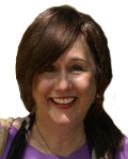
Wisdom
Here Comes The Bride's Mother
Wistfulness and wisdom at a daughter's marriage
Posted July 29, 2012
Life is a great humbler. And the most humbling moments in life, for me, come at the threshold of change. It wasn’t always that way. When I was young, all change was welcomed as progress, growth in my inevitable reach for the sky. I had no doubt that I would eventually be able to see the world from a great height, buoyed by knowledge, confidence, study and travel. I had no doubt that every day I lived would bring me to a better, richer and more elevated state.
There is a joke about young adult “wisdom.” It goes something like this: A thirty year old says about his or her parents: “When I was younger I thought they were really stupid, but now that I’m older they’ve gotten a lot smarter.” I was the youth in that example, always sure that I was way ahead of my forebears. It was easier for me to make that mistake than for most: I was the first of my family to go to college, let alone graduate school. My parents read the tabloids; I read the Times. They believed in the luxury of wall-to-wall carpeting; I preferred ancient kilims on a hardwood floor. My father and mother knew five languages, but they were immigrants who had to learn English as immigrant adults. I, their child, was the one who had to translate for them, interpret their bills, and write their letters. Thus did my vanity grow.
Decade by decade, however, I found that my elders had somehow gotten “a lot smarter.” They knew things about life that I could never comprehend. They knew the sorts of things that those who know not only love but loss can know. In particular, they knew the pain of the modern parent who sees their child grow more and more distant, not only mentally but geographically. In our modern, American world—to which I was their cocky guide—I explained that we young people were the ones who would create a new and better world. We would exceed our housebound mothers and our narrow, workaholic fathers. We would have sexual and racial equality, and we would do it where and how we wanted. Liberty and self-discovery were our right, we announced.
By our mid-twenties, both my brother and I left to “find our future.” He went to Los Angeles, and I went to England, leaving our parents alone in New York. This was normal: Americans were rootless pioneers, and young Americans of my generation could simply not be stuck in comfortable ruts. We were searchers, unaware that we were not wise enough to know what we would find, or what we’d lost.
In the end, I returned home after a long stay abroad. I had children who lived close enough to see their grandparents, and to let them reap the joys their hard lives had earned. But still, I felt I was their superior. I had had no toys but a ball and a Barbie (my brother had baseball mitt and a bag of marbles); my kids were born to a world of black and white mobiles and mind-enriching Mozart. While my parents were too busy to play hopscotch with me, mine had monogrammed silver rattles, bottles with ergonomic designs, playgrounds with rubber padding. I read to them nightly, choosing enriching books that would teach them the skills they needed in life. But how could I give them the skills I did not have—that capacity to revere my elders and sit at their feet in sheer awe?
My parents are gone now, and so I can’t tell them all I have missed in my conceited climb. Most painfully, I can’t share with them the feelings that I faced last month when my eldest daughter married. For it was then that I truly understood the jarring, inevitable displacements of time. Now my child, not I, would be the explorer. She was the one who would go to Europe to begin her married life, and I would be the one left behind, the one who stands at the airport as my parents had stood, watching a child disappear into thin air. I felt my daughter’s eagerness to leave me and her father; I felt her lack of hesitation as she raced toward her own, individual future. I was proud, and I was crushed to a powder and blown away.
It isn’t as though she won’t come back. And it isn’t as though I’ve lost a daughter. After all, I’ve gained the proverbial son—or son-in-law. My family is expanding, but so is my heart. Most of all, I stand humble and still as time flies by me. I feel its speed, its harsh, uncaring momentum. My daughter grows smaller and smaller at the airport, but it’s her turn to grow vividly large. It is I who am shrinking, I who am the mother of the bride, no longer the fairest, or smartest, or most cocky.
Should I rail against the dying of my light? Never. Instead, I celebrate the dawning of a greater, more gracious light: The light of true parenting, sacrifice, and simple submission to the vibrant courage of the next generation. Along with this comes a deeper love for my own parents, who, though no longer with me, are finally and fully understood. Bittersweet as the moment is, I pass their torch on to the next generation.

